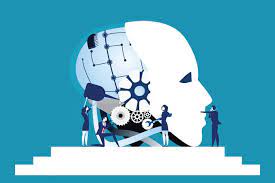Artificial Intelligence (AI) has traversed a remarkable journey from its inception to becoming an integral part of modern society. With each passing year, AI continues to evolve, bringing forth breakthroughs that push the boundaries of what was once thought possible. However, alongside these advancements come ethical considerations that demand careful contemplation and regulation. In this article, we delve into the fascinating evolution of AI, exploring the latest breakthroughs and the ethical dilemmas they present.
The Emergence of Artificial Intelligence:

The concept of artificial intelligence emerged in the mid-20th century, captivating the imaginations of scientists and visionaries alike. Early efforts focused on creating machines capable of mimicking human intelligence, albeit in rudimentary forms. The birth of AI can be traced back to pioneers such as Alan Turing, whose seminal work laid the groundwork for computational thinking.
From Rule-Based Systems to Machine Learning:

Advancements in AI accelerated with the development of rule-based systems and expert systems in the 1970s and 1980s. These systems relied on predefined rules and logical reasoning to perform tasks. However, the true revolution came with the advent of machine learning in the late 20th century. Machine learning algorithms enabled computers to learn from data and improve their performance over time, marking a significant shift in AI development.
Deep Learning and Neural Networks:

In recent years, deep learning, a subset of machine learning, has emerged as a dominant force in AI research. Deep neural networks, inspired by the structure of the human brain, have achieved unprecedented success in tasks such as image recognition, natural language processing, and autonomous driving. Breakthroughs in deep learning have propelled AI into realms once deemed the realm of science fiction, revolutionizing industries and reshaping the way we interact with technology.
Ethical Considerations in AI Development:

While the advancements in AI are undeniably impressive, they also raise profound ethical concerns. One of the foremost issues is the potential for algorithmic bias, wherein AI systems may perpetuate or exacerbate existing societal inequalities. Moreover, the proliferation of AI-powered surveillance technologies raises concerns about privacy and civil liberties. As AI becomes increasingly autonomous, questions surrounding accountability and decision-making authority come to the fore, posing complex ethical dilemmas.
Transparency and Accountability:

Addressing these ethical concerns requires a multifaceted approach that emphasizes transparency, accountability, and responsible AI development. Developers must prioritize fairness and equity in algorithm design, ensuring that AI systems are free from bias and discrimination. Additionally, there is a growing call for regulatory frameworks to govern the ethical use of AI, safeguarding against misuse and abuse.
The Path Forward:

As we navigate the ever-evolving landscape of AI, it is imperative that we remain vigilant in addressing the ethical implications of its advancements. By fostering collaboration between technologists, policymakers, and ethicists, we can strive towards a future where AI serves the collective good while upholding fundamental human values. The evolution of artificial intelligence holds immense promise, but it is incumbent upon us to ensure that it unfolds in a manner that is ethical, equitable, and beneficial for all.
Conclusion:
The evolution of artificial intelligence is a testament to human ingenuity and innovation. From its humble beginnings to the present day, AI has transformed the way we live, work, and interact with the world around us. However, as AI continues to advance, so too must our commitment to ethical principles and responsible development. By grappling with the ethical considerations inherent in AI, we can harness its potential to create a brighter, more inclusive future for humanity.


